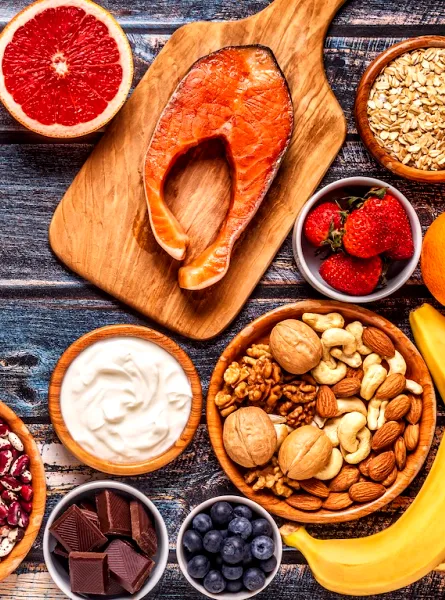
Very few seem to know what normal eating is anymore, so let’s say what it is before we talk about eating disorders.
What Is Normal Eating?
Normal eating can be defined as respecting hunger and satiety cues. It is consuming foods that are sometimes nutritious, sometimes for pleasure and sometimes both.
It also means eating without feeling the need to restrict ourselves in the amount or type of food we eat, and trusting our body will tell us what and how much we need. It is eating for body energy and health rather than eating to control our size or shape.
When Does It Become a Disorder?
Sadly, many find themselves unable to have a normal relationship with food. Our lives and our minds start to be overwhelmingly preoccupied with food and our body size. At this point, we might have an eating disorder and unfortunately, many will fly under the radar for years because these thoughts and behaviours are often considered normal in our “crazy unrealistic thin ideal”-obsessed culture.
To help better understand what eating disorders are and what they are not, here are 6 uncontested facts that everyone needs to know!
1. Eating Disorders...Are NOT Related to Vanity
Even though on the surface eating disorders seem closely related to vanity in personal appearance, they aren’t about appearance or even about food at all. Eating disorders are about control and perception of self-worth.
People affected often feel out of control in other aspects of their lives and therefore may try to gain control through eating monitoring and body manipulation through food or exercise. They may also use food to manage strong emotions they are otherwise unable to deal with in more helpful ways.
2. Eating Disorders...Are NOT a Phase
Although not everybody will develop an eating disorder, early signs can be red flags, such as ;
- preoccupation with body size
- preoccupation with eating healthy or clean eating
- dieting or drastic changes in food choices.
Also, some groups are more vulnerable than others. Teenagers, because of an actively changing body , can overly judge themselves against a culture where child-like bodies are often idolized.
Body image distortions and abnormal eating patterns should be taken seriously.
They are not a phase, nor are they a choice.
3. Eating Disorders...Do NOT Discriminate
Eating disorders, contrary to certain beliefs and what is mainly shown on television, don’t only affect thin, young, middle class, (add any other descriptive) females. They can affect men and women from any age, socioeconomic, ethnic or cultural background.
Most importantly, they can affect people from all body sizes. It is therefore important not to assume that someone who has what is considered a normal weight or someone who lives in a larger body cannot have an ED, as not recognizing that person’s struggle could be very hurtful to them and prevent them from seeking the professional help they deserve.
4. Eating Disorders...Are NOT Always Visibly Noticeable
People with eating disorders don't necessarily look like the typical emaciated figure. In fact, most people struggling with eating disorders and disordered eating may not show any obvious external signs.
It is likely that you have come across people in your life suffering in silence without even realizing it. This is also why talking about dieting, weight loss/gain/management or appearance, about yourself or others may be unintentionally triggering for someone with an ED.
Eating disorders present themselves on a spectrum, meaning that people don’t have to have either a very healthy and balanced relationship with food or a very severe eating disorder. Many people will fall somewhere in between and may not be easily identified.
5. Eating Disorders...Are NOT Anyone's Fault
Eating disorders are caused by a phenomenon sometimes referred to as “The perfect storm”, which is a combination of factors such as a genetic predisposition, dieting history, access to food, self-esteem, exposure to thin culture, trauma, etc… with each individual having a different sensitivity to these factors. Eating disorders are NOT the parents, spouse or friends’ fault. Rather, these people can have an important and supportive role in the recovery process.
6. Eating Disorders...Professional Dietitian Support Really DOES Help.
If you find that food concerns and/or body size occupy too big a part in your thoughts, or if you are concerned by your child’s attitudes around food and body image, don’t hesitate to contact a professional dietitian working in eating disorders. They will be able to help you break free from food rules and help you build a healthier relationship with food and your body.
For more information about the different types of eating disorders, visit our Eating Disorders support page.





